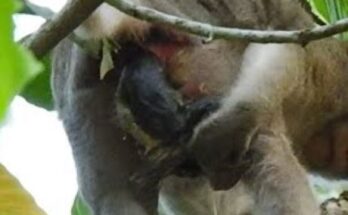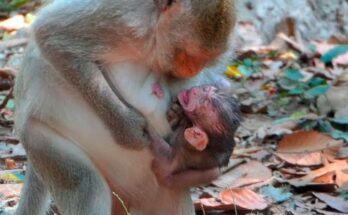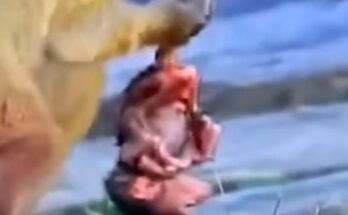In the dense heart of the forest, where sunlight barely pierces the thick canopy, a young monkey played among the branches with an unbridled sense of curiosity. The little monkey was barely more than a baby, its soft brown fur still fluffier than the sleek coats of the older primates. It swung joyfully from vine to vine, unaware of the territorial disputes and hierarchies that governed the forest’s primate inhabitants.
Nearby, a much larger monkey perched on a thick branch, its eyes fixed intently on the smaller one. The big monkey was an alpha male, known for his aggressive temperament. He had spent years asserting dominance over the troop and was particularly protective of his space. When the little monkey inadvertently wandered too close to the older primate’s perch, the alpha saw this as an act of intrusion.
With a warning growl, the big monkey lunged forward. The little monkey froze, confused and frightened. Before it could escape, the alpha’s sharp teeth sank into the soft flesh of its arm. The bite was quick but left a deep mark, and the smaller monkey let out a piercing cry that echoed through the trees.
The commotion quickly attracted the attention of other monkeys in the troop. Several females, including the injured monkey’s mother, rushed to the scene, chattering angrily at the alpha. Sensing the growing hostility, the big monkey retreated, his dominance momentarily challenged by the collective force of the troop.
The little monkey was carried away by its mother, trembling and whimpering. The bite would heal in time, but the experience left the young one wary and more cautious of the complex rules that governed life in the forest—a painful but necessary lesson in survival.


